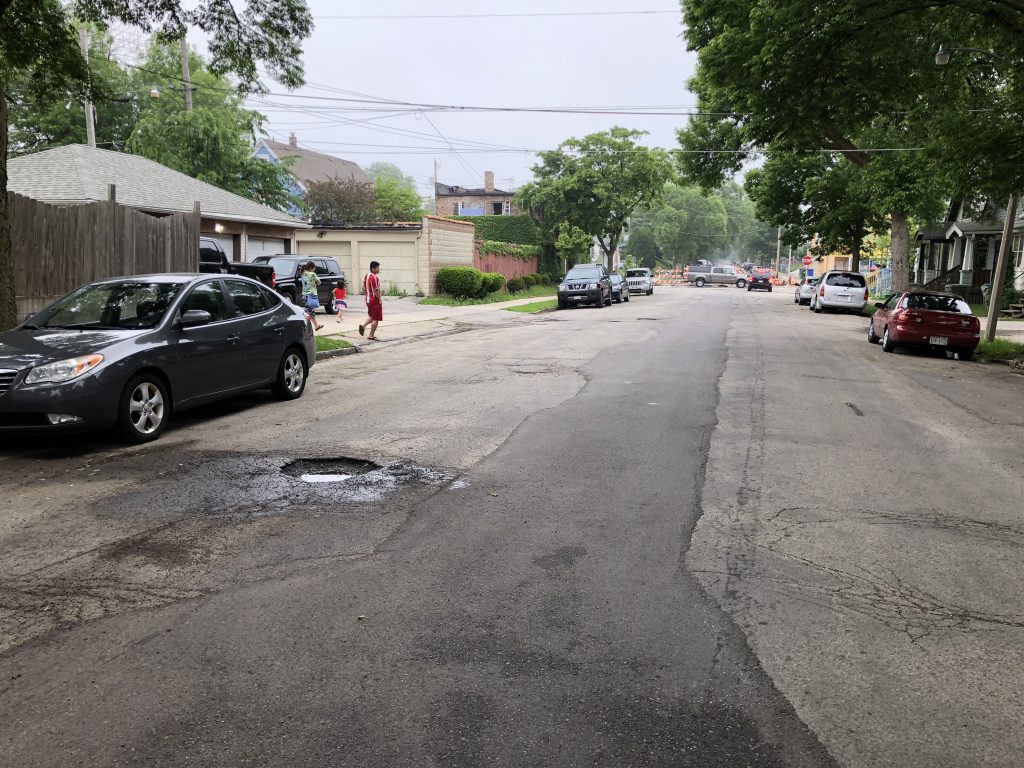Pandemic Imperiling Local Government Budgets
Local governments need additional federal aid to get through next year.
City and town governments in Wisconsin could face sharp cuts to their budgets next year without additional federal aid, according to Jerry Deschane, executive director of the League of Wisconsin Municipalities.
Deschane told WPR’s “The Morning Show” Thursday that municipalities have already lost at least $400 million in revenue because of the pandemic.
Meanwhile, cities and towns have seen their costs go up because of the pandemic, from direct health costs to buying computers and other IT infrastructure to accommodate remote work.
Even tracking the way local governments have spent federal and state aid money is itself an added expense, he said.
“Nine times out of 10, that means they’re not going to fix the pothole in front of your house this year. Maybe we’ll get to it next year, maybe we’ll get to it in five years,” he said. “It means local governments have to borrow more money.”
Deschane said another looming concern is the future of the state’s shared revenue program, which is the second largest funding source for municipal governments.
“If the state has to balance its budget — and they’re talking about a billion dollar shortfall — the shared revenue program could easily take a 5 or 10 percent hit,” he said. “That’s $50-100 million of lost income for local governments.”
He’s calling for Congress and the White House to approve another round of aid to cities and towns as part of the next coronavirus relief package.
Listen to the WPR report here.
Pandemic Could Hurt Local Government Budgets Into 2021 was originally published by Wisconsin Public Radio.
More about the Coronavirus Pandemic
- Governors Tony Evers, JB Pritzker, Tim Walz, and Gretchen Whitmer Issue a Joint Statement Concerning Reports that Donald Trump Gave Russian Dictator Putin American COVID-19 Supplies - Gov. Tony Evers - Oct 11th, 2024
- MHD Release: Milwaukee Health Department Launches COVID-19 Wastewater Testing Dashboard - City of Milwaukee Health Department - Jan 23rd, 2024
- Milwaukee County Announces New Policies Related to COVID-19 Pandemic - David Crowley - May 9th, 2023
- DHS Details End of Emergency COVID-19 Response - Wisconsin Department of Health Services - Apr 26th, 2023
- Milwaukee Health Department Announces Upcoming Changes to COVID-19 Services - City of Milwaukee Health Department - Mar 17th, 2023
- Fitzgerald Applauds Passage of COVID-19 Origin Act - U.S. Rep. Scott Fitzgerald - Mar 10th, 2023
- DHS Expands Free COVID-19 Testing Program - Wisconsin Department of Health Services - Feb 10th, 2023
- MKE County: COVID-19 Hospitalizations Rising - Graham Kilmer - Jan 16th, 2023
- Not Enough Getting Bivalent Booster Shots, State Health Officials Warn - Gaby Vinick - Dec 26th, 2022
- Nearly All Wisconsinites Age 6 Months and Older Now Eligible for Updated COVID-19 Vaccine - Wisconsin Department of Health Services - Dec 15th, 2022
Read more about Coronavirus Pandemic here























Unfortunately, the Trump Administration has blocked states and localities from using CARES Act funds to replace lost or delayed tax revenues to maintain public services, creating bureaucratic red tape in the middle of a public health emergency and ensuing economic crisis. It’s easy to see how the pandemic and resulting economic problems have affected governmental revenues. Eliminating this restriction would be a significant benefit to state and local governments without requiring any additional; Congressional appropriations.
Republicans decry the notion of defunding police, but their inaction on the Democratic proposal to fund state and local governments will surely result in reductions to first responders of all types. Right now Mitch McConnell is a far bigger threat to local police strength than any of the protesters.